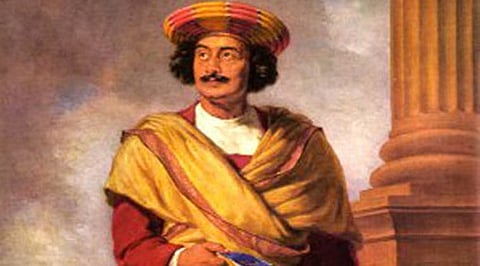When we think of Father’s Day, we often picture warm memories of dads guiding us, supporting us, and shaping who we become. But fatherhood isn’t always about just raising children within the home—it can also mean standing up for a better world where children, especially daughters and marginalized communities, can grow up with dignity, education, and equal rights.
Fathers Of Social Change: Men Who Redefined Parenthood
This Father's Day, meet the visionary Indian fathers like Jyotiba Phule, Raja Ram Mohan Roy, Periyar who shaped society for future generations.
India’s history is filled with powerful examples of such father figures—Indian social reformers who didn’t just raise their own children with progressive values, but who fought to change society so every child could live a better life. Let’s remember three such pioneers this Father’s Day: Jyotiba Phule, Raja Ram Mohan Roy, and Periyar E.V. Ramasamy. Their courage redefined what it means to be a father, not just in the personal sense, but as Pioneers of Social Justice in India and agents of change and hope for generations.
1. Jyotiba Phule: A Father Who Fought for Equality

Jyotiba Phule, born in 1827 in Maharashtra, was a social reformer and a strong voice against caste discrimination and gender inequality. What made him stand out was his deep belief in education as the key to empowerment, especially for women and Dalits, fundamentally shaping gender equality in India's history.
Along with his wife, Savitribai Phule, he opened the first school for girls in India in 1848. At a time when educating girls was considered a sin, Jyotiba stood firm. He encouraged Savitribai to teach and even supported her when she was verbally abused by society. His home was open to orphans and widows, those whom society had rejected.
Though Jyotiba and Savitribai did not have biological children of their own, they adopted a boy named Yashwant, whom they raised with love and care. Jyotiba’s idea of fatherhood was not limited to blood. It was about lifting others up, fighting injustice, and creating a more equal world for all children.
2. Raja Ram Mohan Roy: The Father of Indian Renaissance

Raja Ram Mohan Roy is often called the “Father of Modern India.” Born in 1772 in Bengal, he saw the evils of orthodox traditions early on. One of the cruelest among them was the practice of sati, where widows were forced or expected to burn themselves on their husband’s funeral pyre.
Roy couldn’t bear the injustice. He spoke out strongly against it, even when it brought threats to his own life. His efforts led to the official abolition of sati in 1829 by the British government. He also advocated for women’s education and rights, laying the foundation for India’s social reform movement.
As a father, Ram Mohan Roy raised his own children with values of reasoning, compassion, and justice. But his larger role was that of a national parent—someone who dreamt of a future where knowledge, equality, and rational thinking replaced blind faith and fear.
3. Periyar E.V. Ramasamy: The Father Who Questioned Everything

Periyar, born in 1879 in Tamil Nadu, was a bold and outspoken critic of caste oppression, patriarchy, and religious dogma. He believed that true fatherhood meant ensuring that no child, especially girls and those from oppressed castes—was treated as less than human.
He supported women’s right to education, property, and equality in marriage. He spoke about self-respect and dignity, not just for his followers but for every individual. Though his views were radical for his time, they forced society to think, question, and evolve.
Periyar saw fatherhood not as control over one’s children, but as a responsibility to leave behind a fairer world. He famously said that self-respect and rationalism are the greatest gifts a parent can give a child.
Why These Men Matter on Father’s Day
These reformers might not have been celebrated with greeting cards or family dinners, but they lived lives that shaped millions. They challenged deep-rooted customs not for fame or power, but out of love—for their families, for the marginalized, and for future generations.
On Father’s Day, remembering such figures helps us expand the idea of what it means to be a "father." It’s not just about earning a living or setting rules—it’s about nurturing, protecting, educating, and standing up for what’s right.
These were men who taught us that love sometimes means rebellion. That care means action. And that the best kind of father is someone who prepares not just his own child, but an entire society, for a better tomorrow.
This Father’s Day, let’s thank not only the men who raised us—but also those who lifted generations with their effort for societal change.
Follow 카지노 Experiences:
| | |